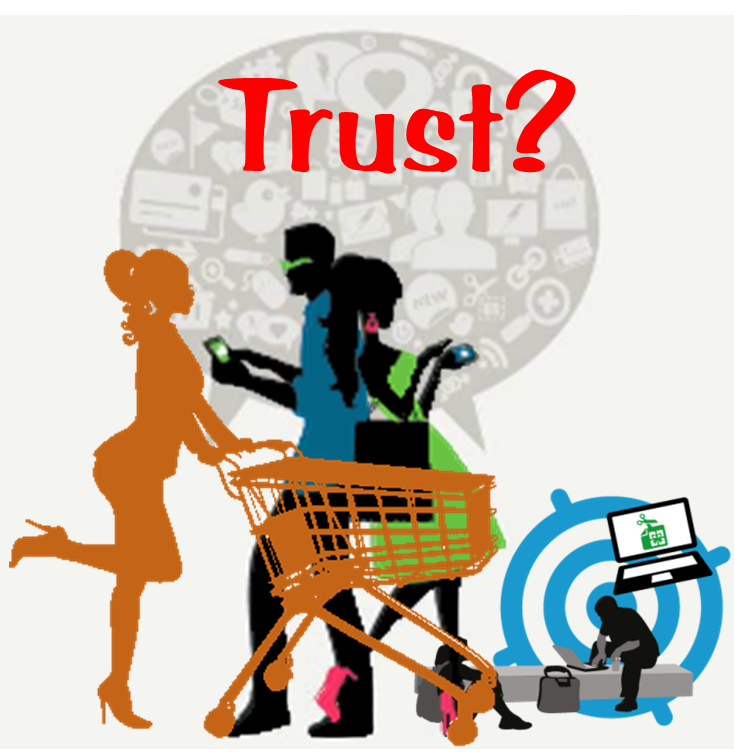The late Russian novelist and philosopher Fyodor Mikhailovich Dostoyevsky, once wrote, “For, after all, you do grow up, you do outgrow your ideals, which turn to dust and ashes, which are shattered into fragments; and if you have no other life, you just have to build one up out of these fragments.” A number of commentators believe Dostoyevsky’s statement is being turned on its head by millennials and members of Generation Z. Many members of those generations see the world being shattered into fragments and rather than outgrowing their ideals they are holding fast to them. This is important for retailers and brands to know, because they are backing their ideals with their pocketbooks.
Daphne Howland (@daphnehowland) writes, “Aligning shopping with values is emerging as a hallmark of U.S. consumerism, with millennials aged 25 to 34 dominating that trend, according to a report … from consumer intelligence platform Resonate. Gen Xers also make their mark in what Resonate calls activist shopping, especially when it comes to a brand’s ethics. Those shoppers, mostly Gen X women with older children, favor companies ‘that treat their employees fairly, are honest and trustworthy, have truthful advertising and price products fairly,’ and are the largest segment Resonate found. Along with ‘ethical shoppers,’ Resonate identified environmental and charitable shoppers. The first prefer ‘companies that reduce their energy use, reduce their packaging and provide safe products’ and represent about 34% of the U.S. adult online population or 77 million people, according to the report. The charitable shopper looks for companies to donate to charities and support the community and is the smallest segment of activist consumers, about 24% of the population.”[1]
According Corinne Ruff (@corinnesusan), millennials and Gen Xers not only buy products from brands and retailers that do good in the world they boycott those that don’t.[2] She reports, “In the past year, 33% of millennials and 35% of Gen Xers boycotted a company or product they had previously spent money on, according to a new report from CompareCards.com. Overall, 26% of Americans are actively boycotting a product today. Men and parents with young kids are most likely to be boycotting a product or retailer, according to the report.” The CompareCards.com study also corroborated the findings of the Resonate study. Ruff writes, “Nearly six in 10 said they’re more likely to buy from a retailer or brand that gives to charities or is associated with causes they support.”
To reach millennials and Gen Zers, think like they do
Erick Rowe (@ErickMRowe), Infor’s Vice President of industry strategy, observes, “Millennials may be the most environmentally aware, skeptical and global generation. As such, brands must offer products and experiences that promote these virtues and entice millennials to align their loyalty with a specific brand.”[3] Rowe goes on to note that connecting with younger generations requires companies to think like they think. He explains, “Getting millennials to promote brand loyalty on their own social networks is often the most authentic and effective form of marketing and brand building available. However, asking customers to ‘Like Us’ on Facebook is an ancient tactic. Simply being on Twitter is not enough. Even having quasi-official ‘influencers’ on Instagram is suspect to the millennial consumer. Real people taking time out of their real lives to talk about a brand is the authenticity millennials crave. In fact, according to Forrester Consulting, if brand communication is seen as ‘human,’ customers are 1.6 times more likely to make a purchase and 1.8 times more likely to recommend that particular brand.”
Who do they trust?
Adrienne Selko (@ASelkoIW), Senior Editor at IndustryWeek, asks, “What makes a brand trustworthy to Millennials and Gen Z?”[4] For an answer, she turns to a study by Wharton Business School. That study found, “This group is mainly interested in supporting brands that are ethical, caring and strive to do the right thing. The brands that base their corporate missions on these kind and charitable qualities are much more able to earn the trust of this important young demographic.” She also found very interesting a survey of 80,000 young consumers conducted by Ybrands concerning “their perceptions of 230+ brands across five verticals: fashion/apparel, CPG food/beverage, health and beauty, QSR/casual dining and media/tech/ entertainment.” The Ybrands survey concluded the top 10 brands trusted by these two groups were:
1. Dove. “Dove has a long-standing commitment to creating a world where beauty is a source of confidence, and not anxiety. The Dove Self-Esteem Project (which launched in 2004), helps women develop a positive relationship with the way they look and raise their self-esteem. To date, it has reached the lives of nearly 30 million young people in 138 countries.”
2. Nike. “The company asks material vendors and contract manufacturers to reduce the negative impact on the environment and hope to achieve a goal of zero discharge of hazardous chemicals into the environment by 2020.”
3. Hershey. “[Last year] the company unveiled its new CSR strategy, Shared Goodness Promise, which aims to make a positive difference in peoples’ lives through investments, collaborative programs and sustainable business practices.”
4. Amazon. “The company has a goal to install solar systems on 50 fulfillment facility rooftops worldwide by 2020.”
5. Oreos. “Parent company Mondelez International has a $400 million Cocoa Life program and Palm Oil Action Plan.as a way to drive social sustainability across its business and supply chain.
6. M&M’s. “The company’s Supplier Code of Conduct prohibits the use of prison, slave, bonded, forced and indentured labor and human trafficking.”
7. Target. “In 2018, the company announced a freshwater stewardship approach that addresses how to improve water quality, optimize water efficiency and increase access to clean water in communities where it operates.”
8. Google. “In 2016, the company marked 10 years of operating as a carbon neutral company. Six of its operating data centers have achieved 100% landfill diversion, and one of these has also reached Zero Waste to Landfill.”
9. Netflix. “The company purchases renewable energy certificates to match its non-renewable energy use and it funds renewable energy production from sources like wind and solar.”
10. Adidas. “The company requires its suppliers to pay men and women equally. They verify the compliance status of their suppliers through internal and third-party audits, worker hotlines and grievance processes.”
If you’ve been following the news, you know that hundreds of thousands of students have protested to get governments to take climate change seriously. Companies certainly have taken notice. In a separate article, Howland reports, “Patagonia, Lush and several other retailers shuttered stores in solidarity with students leaving classrooms to stage demonstrations in support of climate change action.”[5]
Concluding thoughts
One of our clients, Nestlé, the world’s largest food supplier, recently announced it aims “to effectively eliminate greenhouse gas emissions across its massive global supply chain by 2050.”[6] Katherine Dunn (@katherine_dunn), Associate Editor of Fortune, reports, “The 2050 target will include launching more plant-based food and drink products, moving to alternative packaging materials, increasing the reliance on renewable energy, initiating programs with farmers to shift land use, and further efforts to stop deforestation.”[7] Brands and retailers are demonstrating solidarity with millennials and Gen Xers for many reasons, including self-interest. Doing good for society and the planet is good for business. The Resonate study concludes, “Brands need to take a stand on the issues that align with their consumers.” Howland adds, “That means both understanding what’s important to customers, and marketing any efforts made in those realms.”
Footnotes
[1] Daphne Howland, “Millennials, Gen X are the most activist shoppers,” Retail Dive, 10 September 2019.
[2] Corinne Ruff, “A third of millennials joined a boycott last year,” Retail Dive, 1 February 2019.
[3] Erick Rowe, “Marketing to millennials: It’s about loyalty and personalization,” MarTech Today, 24 January 2019.
[4] Adrienne Selko, “Top 10 Brands Millennials, Gen Z Trust,” IndustryWeek, 12 July 2018.
[5] Daphne Howland, “Retailers shutter doors in solidarity with climate change strike,” Retail Dive, 23 September 2019.
[6] Katherine Dunn, “Nestlé, World’s Largest Food Supplier, Aims to Eliminate All Greenhouse Gas Emissions By 2050,” Fortune, 12 September 2019.
[7] Ibid.





